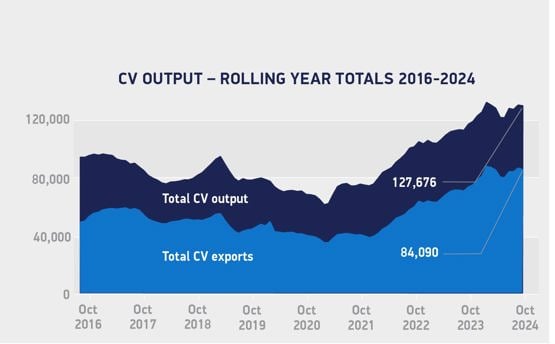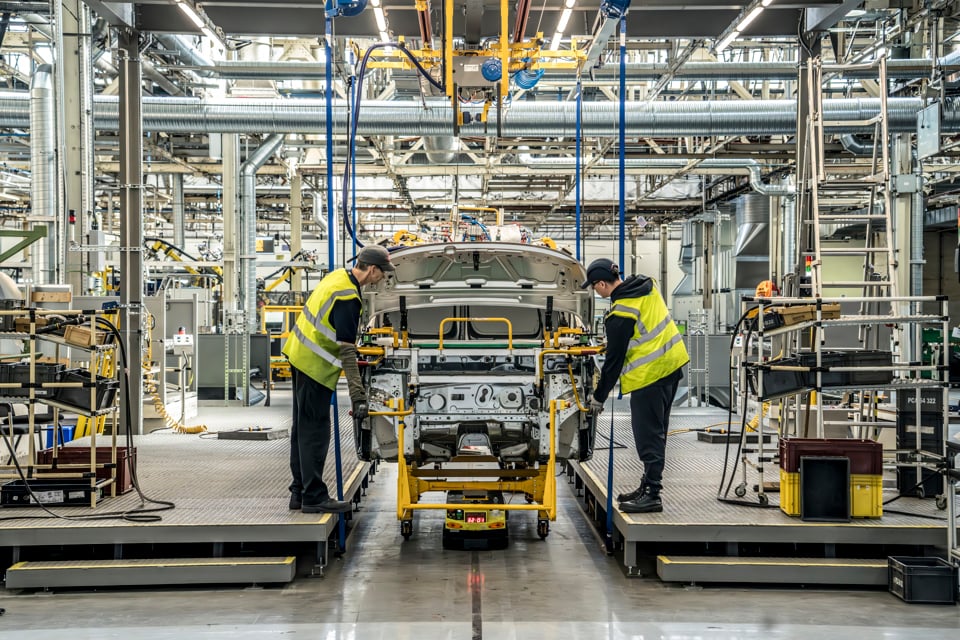UK commercial vehicle production has declined for the second month in a row, in November, according to the latest figures from the Society of Motor Manufacturers and Traders (SMMT).
A total of 12,749 commercial vehicles left factory gates, last month, representing a year-on-year drop of 4.1%.
The SMMT is calling for the Government to introduce an “ambitious industrial strategy – with automotive at its heart.”
It claims the “right” strategy could help deliver a “massive” £50 billion of green growth by 2035

The UK’s commercial vehicle sector is export-led with seven in 10 (70.9%) vehicles produced in November heading overseas, although volumes were down by 4.4% to 9,034 units.
The EU continues to be Britain’s biggest export market, with almost all (98.7%) exports destined for sale in the bloc. Production for the UK is still significant, at 3,715 units, although 3.2% below November last year underlining the importance of measures that encourage greater uptake of new CVs – particularly the latest zero emission models, many being made in Britain.
In the year to date, volumes are up 5.6% with 118,583 units produced – the largest January-November output since 2008, reflecting robust demand in the UK and Europe. Growth is also greener with ever more British-built zero emission models being made.

The SMMT said the UK can have a major role in decarbonising the sector globally – bringing with it new investment, a stronger economy and more jobs – but it warned that such gains are not guaranteed as manufacturers look globally for the most competitive countries in which to invest.
Mike Hawes, SMMT chief executive, explained: “With more British-built commercial vehicles keeping businesses here and abroad on the move, that supports UK jobs, trade and economic growth. It’s essential this sector continues to thrive but long-term growth requires an ambitious Industrial Strategy to make Britain a globally attractive location for new investment.
“Having strong markets close to where products are made is a major advantage, so government’s review of the EV mandate must come quickly and ensure market support is as ambitious as regulation.”




















Login to comment
Comments
No comments have been made yet.